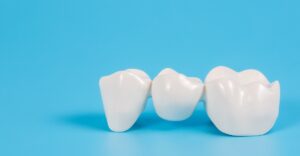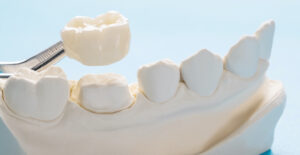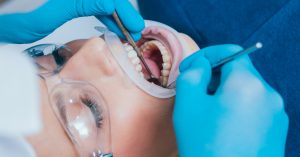Reduced saliva flow results in dry mouth and is often seen in older adults. The salivary glands help keep your mouth moist, which helps prevent decay and other oral health problems.
Dry mouth may be a sign of a medical condition. It also can be caused by stress, aging, radiation therapy and chemotherapy, as a side-effect of certain medications, or diseases such as AIDS, diabetes or Sjogren’s Syndrome.
Consequences of Dry Mouth
Dry mouth may result in sore throat, difficulty in talking, chewing or swallowing, burning sensation or hoarseness. It also allows plaque to build up on your teeth faster, and does not wash away the harmful bacterial products as effectively, leading to more extensive decay.
Sjogren’s Syndrome
Sjogren’s Syndrome is an autoimmune disease that causes the body to attack its own glands and may affect the salivary as well as sweat glands and lacrimal glands in the eye. Approximately 2-4 million Americans have this condition. The majority of sufferers are women in their late 40s.
Sjogren’s Syndrome is difficult to diagnose because symptoms vary greatly and often mimic the signs of aging. Patients may experience dryness in the eyes and mouth as well as fatigue and joint pain.
Dry Mouth Treatments
There are many treatments that can help ease the symptoms, but a true cure is more difficult to achieve and the focus is usually on making the patient more comfortable:
- Brush and floss twice a day – keeping the teeth clean help prevent decay and gum disease
- Chewing sugarfree candy or gum may stimulate saliva flow
- Avoid alcohol and caffeine
- Avoid smoking
- Avoid dry foods, such as toast or crackers
- Drink plenty of water
- Use over-the-counter artificial saliva replacements
- Visit your dentist regularly












